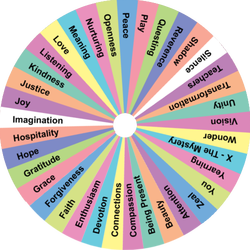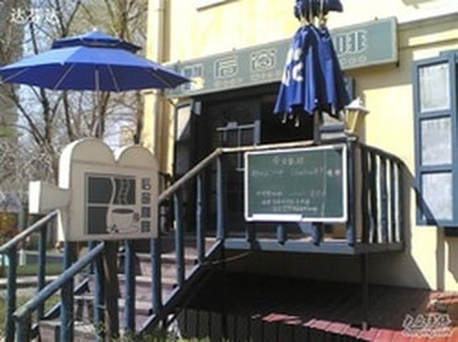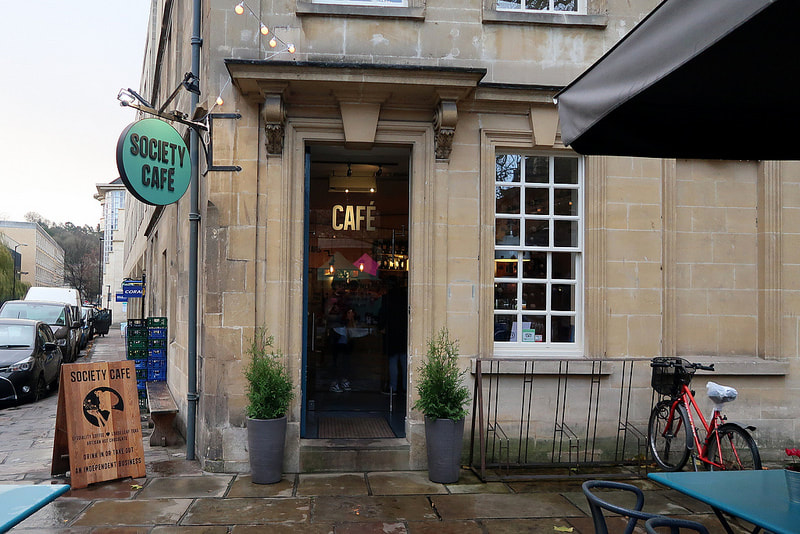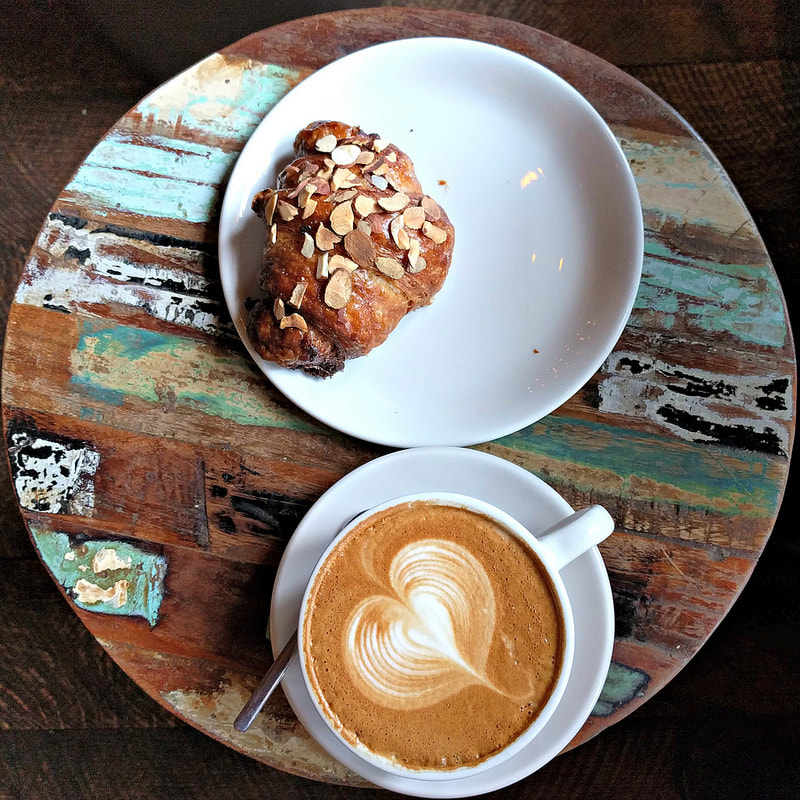Why Constructive Postmodernists
Need Coffee Shops
Why Constructive Postmodernists Need Coffee Shops
Constructive postmodernism (process philosophy) is not simply a worldview or an alternative metaphysic. It is also, and perhaps most deeply, a way of living in the world. A lifestyle. It has implications for the practical things in life: marriage and parenting, for example, It takes emotions very seriously, and says that how we feel about things is as important, perhaps more important, than how we think about things, since thinking itself is but a form of feeling (prehending).
This lifestyle is enjoyable in its own right. It honors and celebrates the many modes of spiritual aliveness that are part of the human experience. Mary Ann and Frederic Brussat name 37 of them.
This lifestyle is enjoyable in its own right. It honors and celebrates the many modes of spiritual aliveness that are part of the human experience. Mary Ann and Frederic Brussat name 37 of them.
These thirty seven modes of aliveness, along with any others you might add, as part of the "spirituality" of an ecological civilization. They are the spiritual alphabet of the lifestyle of what we can call "eco-persons."
But the eco-person lifestyle is not oriented toward spirituality alone. The eco-person is also inspired by what the philosopher Whitehead calls “world loyalty." The aim of the eco-person is to help develop communities, in urban and rural settings, that are creative, compassionate, participatory, ecologically wise, and spiritually satisfying, with no one left behind. He or she is devoted to what Martin Luther King, Jr., called beloved communities (loving communities) with ecology added.
These communities are the building blocks of what process thinkers call ecological civilizations: civilizations that live with respect and care for the community of life, humans much included. Such civilizations can be enriched and informed by many different cultural traditions: East Asian, South Asian, Central Asian, North American, South American, European, African, Slavik, Oceanic. There are as many kinds of ecological civilizations as there are cultures and peoples. They form, as it were, a rainbow coalition of world loyalty.
However, these civilizations can only develop if people develop the arts, not only of respect and care, but also the arts of dialogue and conversation. These are people who enjoy a sense of playfulness and imagination: a people who feel safe and free, where pressures to “draw the right conclusions” are bracketed, This spirit of open conversation is part of the openness of what we call Open Horizons in this website. It is part of what the Brussats mean by "connection" and "imagination" and "play" and "you" and "questing." Eco-persons feel a love of life itself, indeed a "zeal" for life. And part of this zeal is to quest, to question, to explore, to engage in conversation,
People can develop these arts and sensibilities in what sociologists call third spaces: places outside the home and workplace where they are free to share. This is why ecological civilizations need coffee shops. They need spaces where they feel at home, and free, and at the same level, and where everybody knows your name. This is why ecological civilizations need bars and restaurants, parks and hair salons, too. And this is why managing a coffee shop is itself, or can be, a primary practice of ecological civilizations. The coffee shop is not a church, a workplace, or a home. It is a third space: a place to develop, and embody, the constructive postmodern (process) lifestyle. It is a space where spirituality and hope come together. Without coffee shops, without third spaces, there can be no ecological civilizations.
-- Jay McDaniel, 2018
History of Coffee Shops
a Gift from Islamic Culture
A short history of coffee and coffee shops offered by BBC,
Podcast called "The Muhammadan Bean"
Podcast called "The Muhammadan Bean"
|
|











